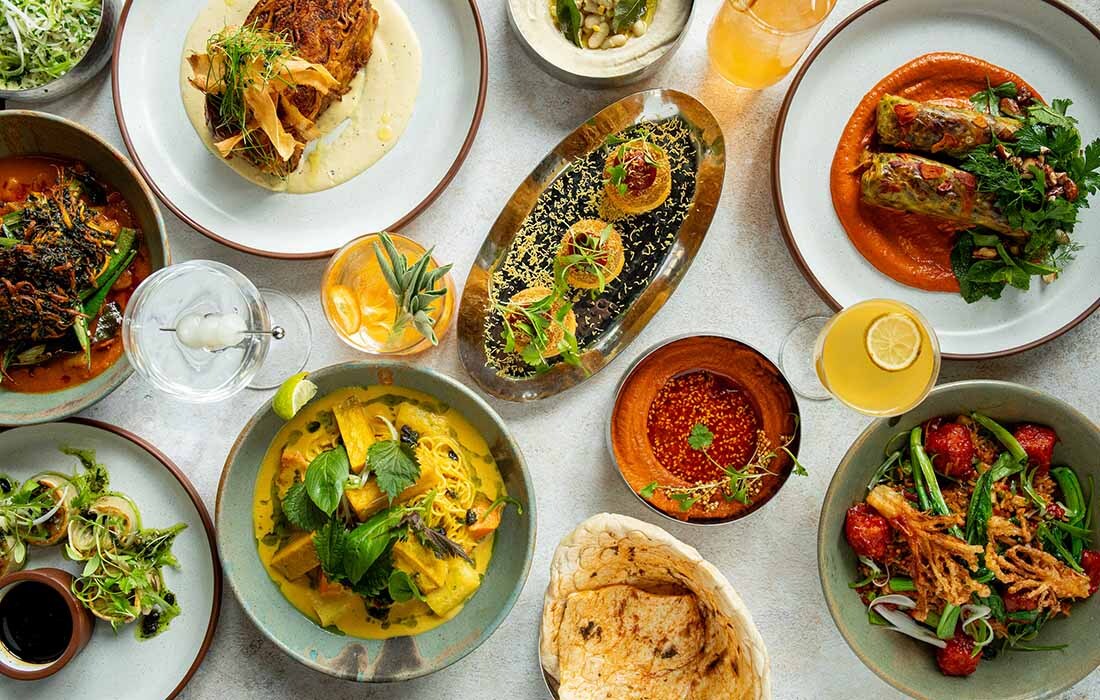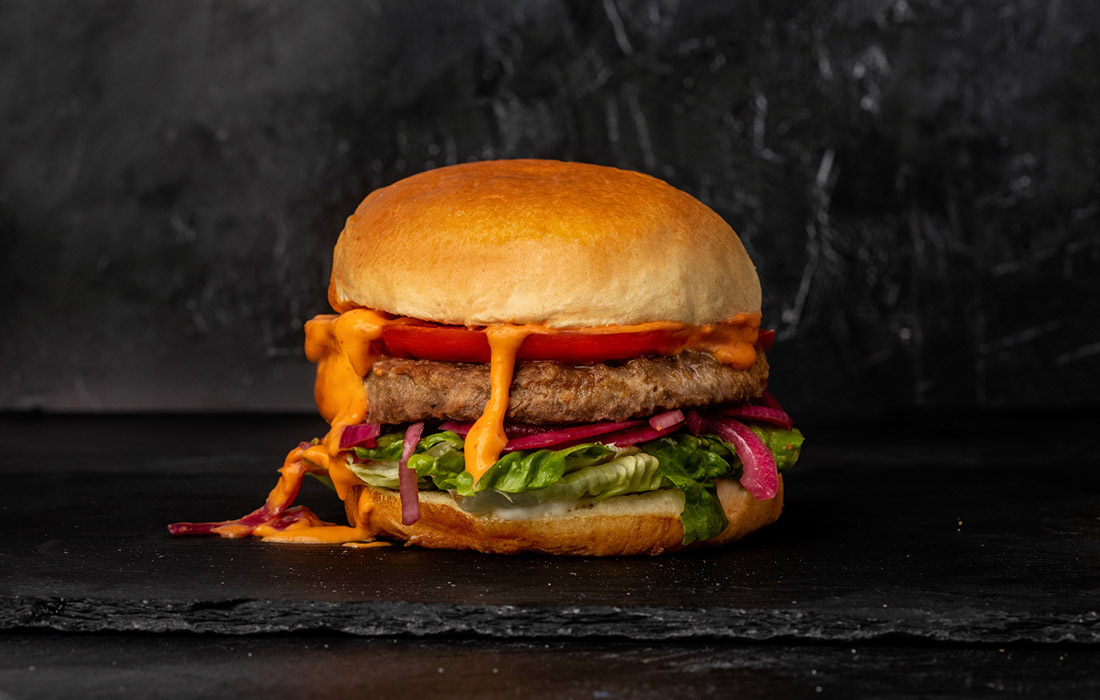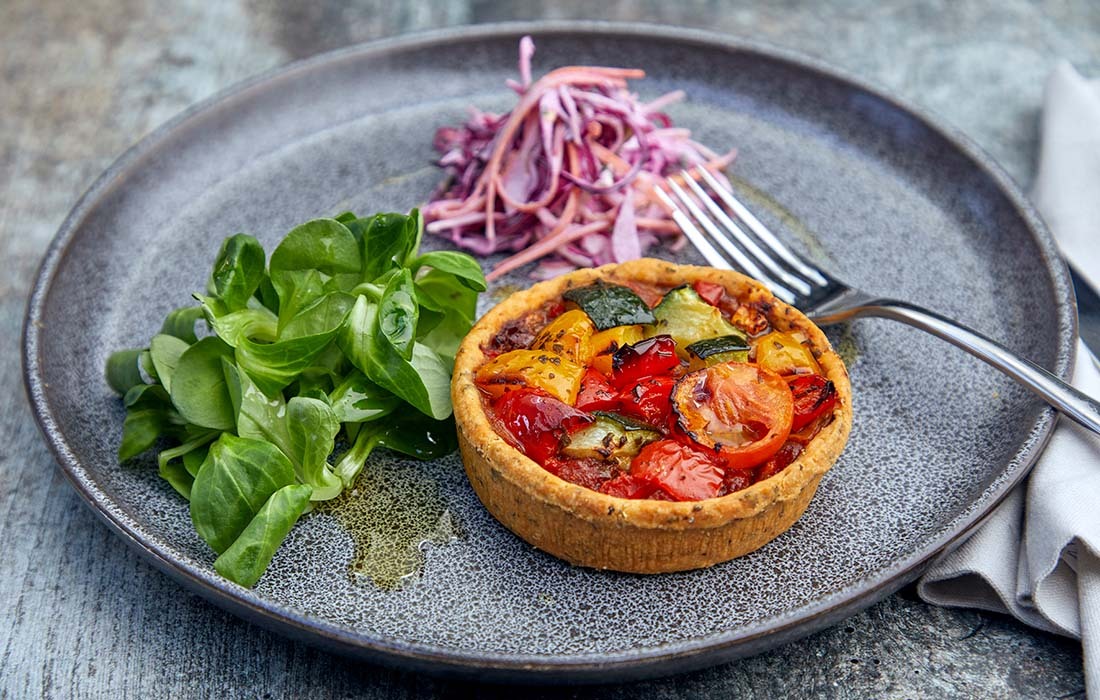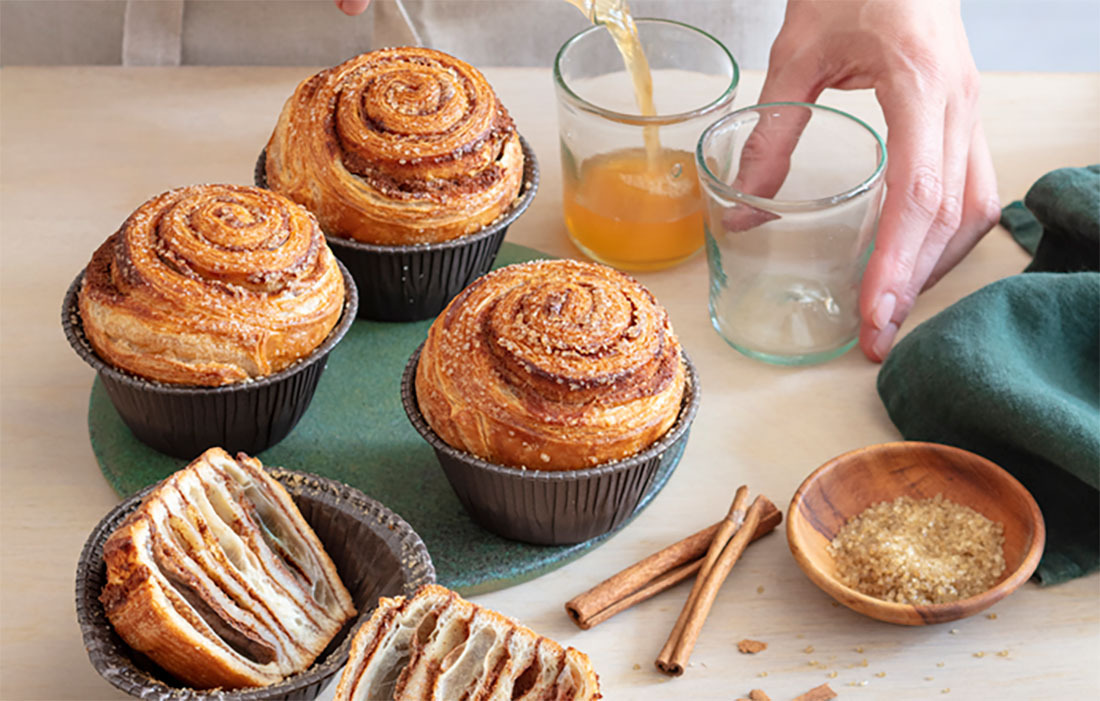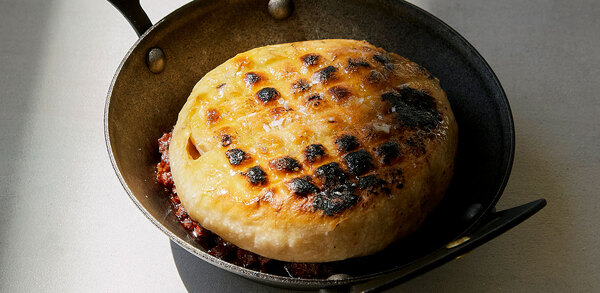Plant-based trends: more than a meat replacement
Vegan and vegetarian restaurants are moving away from replicating meat into a broader, taste-led offering, reports Will Hawkes
Vegan sausages? It’s been done. Vegan burgers? Old hat. Vegan steak? Plenty of good options out there. Vegan Yorkshire pudding? Now that’s a real challenge, according to Mildreds’ director of food Sarah Wasserman – but it’s one the London vegan restaurant has overcome. Diners will be able to ascertain how successfully this autumn.
“We’re launching roast dinner in four of our Mildred sites,” says Wasserman, “because we’ve finally got the Yorkshire pudding where we want it, where we’re happy to launch it! We’ve got two roasts – a Cheddar leek creamy lattice, and our take on a sun-dried tomato pine nut roast, with all the trimmings.”
The roast – available at Victoria, King’s Cross, Dalston and Camden – is a classically British notion at a restaurant which draws exuberant inspiration from across the world, a reflection of the diverse roots of the 100 or so cooking staff that work at Mildred’s and its sister restaurant Mallow. It’s a place where the notion of ‘vegan food’ extends far beyond the meat replacements that have hogged the headlines recently.
If you want to know what’s new and interesting in the world of plant-based cooking, in fact, there are few better places to start.
Mildreds overhauls is plant-based menu
Mildreds was founded as a Vegetarian restaurant in 1988, when – it’s safe to assume – attitudes about vegan or even veggie cuisine were rather less nuanced than now. Wasserman joined whilst studying for a MA in fine and studio art in 2006, and has worked her way up the company, co-writing three Mildreds’ books (most recently Easy Vegan), in that time.
The company has grown and evolved in recent years. It went completely plant-based in 2021, Mallow was launched in Borough the same year (a second branch opened in Canary Wharf in 2023) – and now Mildreds’ Soho branch is preparing to reopen after a huge overhaul, taking in a new kitchen, a new private dining room and an interior that, Wasserman says, better reflects Soho’s eclectic, creative ambiance.
The menu is equally enthralling. Beetroot thel dala and raita; arancini rosso; kimchi gyoza; za’atar padron peppers; and much more besides. There are also two burgers made with vegan chicken, the only concession to meat replacements on the menu.
“I think interest [in meat replacements] is definitely tailing off,” Wasserman says. “And we’re getting feedback from our vegan customers that they don’t want to see that on our menus - but our chicken burgers are still really popular. For people who grew up eating meat, occasionally they’ll have a craving for a sausage or chicken burger – so it’s good that it’s there.” They work with Symplicity, Neil Rankin’s vegan brand, because “there’s no long list of E numbers – it’s fermented vegetables.”
Fermented food is popular amongst Mildreds’ customers. “Gut health is really big, so fermented items like misos, kimchis, pickles, sambals, all made in-house, are in demand,” says Wasserman. Her own current obsession is Mexican chillies, which are much more easily available now than they used to be. “We use dried guajillos and moritos,” she says. “We’ve got an amazing salsa macha [on the menu], which is a kind of Mexican chilli oil, and a mole coloradito, which it’s really smoky.”
What is striking about so much modern vegan food is how many options there are. “We have an extremely international kitchen team, so a lot of it happens organically – ‘oh chef, I want to show you this amazing thing we cook at home’,” she says. “Recently we’ve been making a lot of Hakka, or Indo-Chinese food, and that came from one of our chefs, Anand. He cooked us this amazing Gobi 65 …we got into it really deep.”
Diverse delicacies
This burgeoning diversity has created a customer base that increases by the day, according to research by Finder. The number of vegans in the UK increased by 1.1 million to a total of 2.5 million (4.7% of adults) between 2023 and 2024. Some 3.1 million identify as vegetarian and 3 million as pescatarian, with a total of 8.6 million following a meat-free diet – that’s 16% of adults. More than half of Gen Z could be meat-free by 2025.
How do you reach this growing group? “The secret is to include attractive and delicious menu items that will appeal to all customers, not just those with dietary requirements,” says Gordon Lauder, MD of frozen food distributor Central Foods. “Central Foods has been a long-term champion of providing plant-based and meat-free options to the foodservice sector.
“Increasingly our focus [is] on vegan products that are so tasty they appeal across the dietary requirements divide. Products like our Menuserve mediterranean vegetable tarts that are suitable for vegans and vegetarians, and our vegan and gluten-free KaterVeg! Moroccan-style cauliflower bites.”
Quorn remains popular: recent research from Ipsos revealed that Quorn is the most popular meat alternative with consumers. “QuornPro can cater to every need,” says Paul Jennings, head of culinary at QuornPro. “When consumers are choosing to spend money eating out of home, they want to be sure they’ll love what they are choosing.
“Our vegan protein packed ChiQin range, which includes strips, wings and a buttermilk burger, is perfect for comforting indulgence and convenient for outlets with smaller kitchens. All can be cooked quickly from frozen.”
Healthier priorities
For the Tofoo Company’s David Knibbs, the fundamentals of vegan food remain the same. “Diners are increasingly prioritising healthier and more natural food choices but they don’t want to compromise on flavour,” he says. “This looks set to continue as more and more consumers switch to meat-free diets.”
This includes sweet as well as savoury options. Délifrance has partnered with French baker and pastry chef Rodolphe Landemaine to create the Délifrance Impact plant-based pastries range. “We have developed some fantastic products,” says Landemaine. “We’ve managed to develop things that are the opposite of what we are used to seeing vegan products, and to find textures that you would find in classic bakery products.”
All in all, a more diverse diet, centred around plant-based dishes, seems increasingly popular, according to Dr Laura Kirwan, sustainability lead coordinator at Nutritics. “Operators should look to stop pitting food groups against each other,” she says. “Promoting diverse diets and getting consumers to try new things is the best way for ensuring adequate nutrient intake, overall health and interesting menus which keep guests returning.”
Suppliers
Central Foods centralfoods.co.uk
Délifrance www.delifrance.com
Nutritics www.nutritics.com
Quorn Pro quornpro.com
Symplicity Foods symplicityfoods.com
The Tofoo Co tofoo.co.uk



